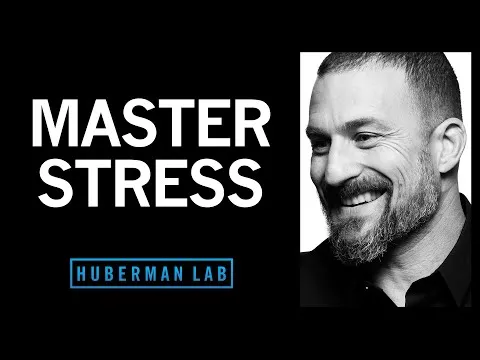
Anger Management Tools Part 2 
Building on the foundational skills covered in "Anger Management Tools Part 1," this course provides advanced tools and techniques for individuals who struggle with explosive anger and other anger management issues. Participants will deepen their understanding of emotional triggers and develop practical strategies for managing anger in a healthy and constructive way. This course also covers effective communication techniques, mindfulness practices, and stress-reduction techniques. By the end of the course, participants will have a comprehensive set of tools and techniques to overcome explosive anger and achieve greater emotional balance in their personal and professional lives. ▼
ADVERTISEMENT
Course Feature
![]() Cost:
Cost:
Free
![]() Provider:
Provider:
Youtube
![]() Certificate:
Certificate:
No Information
![]() Language:
Language:
English
![]() Start Date:
Start Date:
Self Paced
Course Overview
❗The content presented here is sourced directly from Youtube platform. For comprehensive course details, including enrollment information, simply click on the 'Go to class' link on our website.
Updated in [March 08th, 2023]
This course, Anger Management Tools Part 2, provides participants with additional tools to help them manage their explosive anger and anger management issues. Participants will learn how to identify triggers, develop strategies to manage their anger, and practice techniques to help them stay calm. The course will also cover communication skills, problem-solving skills, and how to develop a plan for managing anger. Participants will have the opportunity to practice the skills they learn in the course and receive feedback from the instructor. At the end of the course, participants will have a better understanding of how to manage their anger and be better equipped to handle difficult situations.
[Applications]
After completing this course, participants can apply the tools they have learned to their own lives. They can use the techniques to better manage their anger and to help them cope with difficult situations. Participants can also use the tools to help others who may be struggling with anger management issues. Additionally, participants can use the tools to help them better understand their own emotions and how to better manage them.
[Career Paths]
1. Anger Management Counselor: Anger management counselors help individuals and families learn how to manage their anger in healthy ways. They provide individual and group counseling, as well as educational programs and workshops. This job is expected to grow in demand as more people seek help for their anger issues.
2. Mental Health Therapist: Mental health therapists provide counseling and therapy to individuals and families dealing with mental health issues, including anger management. They use a variety of techniques to help their clients learn how to manage their emotions and behaviors. This job is expected to grow in demand as more people seek help for their mental health issues.
3. Social Worker: Social workers provide counseling and support to individuals and families dealing with a variety of issues, including anger management. They help their clients develop coping skills and strategies to manage their emotions and behaviors. This job is expected to grow in demand as more people seek help for their social and emotional needs.
4. Psychologist: Psychologists provide counseling and therapy to individuals and families dealing with mental health issues, including anger management. They use a variety of techniques to help their clients learn how to manage their emotions and behaviors. This job is expected to grow in demand as more people seek help for their mental health issues.
[Education Paths]
1. Psychology Degree: A psychology degree is a great way to gain a deeper understanding of anger and how to manage it. This degree can provide a comprehensive overview of the psychological and physiological aspects of anger, as well as the various strategies for managing it. Additionally, a psychology degree can provide insight into the underlying causes of anger and how to address them. Developing trends in this field include the use of cognitive-behavioral therapy, mindfulness-based approaches, and the use of technology to help manage anger.
2. Social Work Degree: A social work degree can provide a comprehensive understanding of the social and environmental factors that can contribute to anger. This degree can also provide insight into how to work with individuals and families to help them manage their anger. Developing trends in this field include the use of evidence-based practices, such as trauma-informed care, and the use of technology to help manage anger.
3. Counseling Degree: A counseling degree can provide a comprehensive understanding of the psychological and emotional aspects of anger. This degree can also provide insight into how to work with individuals and families to help them manage their anger. Developing trends in this field include the use of evidence-based practices, such as cognitive-behavioral therapy, and the use of technology to help manage anger.
4. Mental Health Degree: A mental health degree can provide a comprehensive understanding of the psychological and physiological aspects of anger. This degree can also provide insight into how to work with individuals and families to help them manage their anger. Developing trends in this field include the use of evidence-based practices, such as dialectical behavior therapy, and the use of technology to help manage anger.
Course Provider

Provider Youtube's Stats at AZClass
Discussion and Reviews
0.0 (Based on 0 reviews)
Explore Similar Online Courses

Poetry in America: Modernism

Build Real World JavaScript Development Projects Practically

Coping Skills: For A Better Life!

Stress Management: 40+ easy ways to deal with stress

The Stress Detox: A Stress Management Framework for Leaders

How to Develop Emotional Resilience to Manage Stress

Manage Workplace Stress & Strike a Balance

Stress Management - 1-Hour Intro Course - Reduce Stress Now

Stress Management - For Relief From Stress of Life & Work

Managing Your Reactions in Difficult Situations

Stress Management Techniques: How to Reduce Stress Naturally

Tools for Managing Stress & Anxiety
 Related Categories
Related Categories
 Popular Providers
Popular Providers
 Popular Searches
Popular Searches
Quiz
 Submitted Sucessfully
Submitted Sucessfully
1. Which of the following is NOT a tool for managing anger?
2. Which of the following is a tool for managing anger?
3. What is one of the anger management tools discussed in this course?
Correct Answer: Deep breathing.


Start your review of Anger Management Tools Part 2